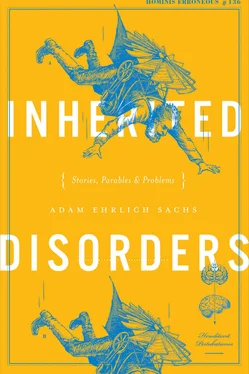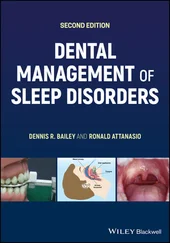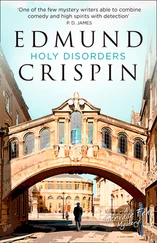At an impasse, they brought in their father and asked him point-blank why he wanted to be frozen. The old man was quiet for a moment and then said that he had not finished thinking about the Ottoman Empire.
Neither of the sons, needless to say, was happy with this answer, and they decided to bury their father rather than freeze him. Still, to comfort him in his remaining days, they got an estimate for how much it would cost to keep his head frozen for ten thousand years, and even forged and signed a fake contract to this effect. At the same time, they secretly paid cash for a burial plot, which was obviously cheaper, though surprisingly not that much cheaper. I hear the Ottoman historian’s last words were: See you soon!
71: THE LABOR HISTORIAN’S HEAD
…………………….
That is not the only cryogenic preservation story I know involving a historian and his son, oddly enough. What is it about historians, their sons, and the promises and possibilities of cryogenics? In any case, this other, rather more personal story, which involves a historian not of the Ottomans but of American labor movements, has a happier ending, sort of.
This historian’s son, whom I met during my horrible year in Los Angeles, offered me a beer once in exchange for notes on his screenplay. I accepted, not for the beer but in hopes of making a friend. He sat me on his I think rotting sofa, brought me a glass of Diet Coke — turns out he didn’t even have any beer — and a copy of his script, and shut himself in his bedroom. (He said he didn’t want to “overhear” my reactions.)
The script was bad. I read slowly, painstakingly seeking out details to praise while formulating at the same time a “general reaction” that I immediately realized would have to be completely mendacious, and after ten pages I took a break under the pretense of getting more ice for my soda. I strolled into the kitchen and came upon two large freezers sitting side by side. Some heavy-duty leather work gloves hung from a hook attached by magnet to one of them. All in all, a strange setup.
I called out, “Which freezer for ice cubes?”
“Left one,” he called back.
“What’s in the right one?” I asked, but then answered my own question by lifting the lid and finding inside the frozen head of a middle-aged man. His eyes were open. He looked a little judgmental. His prominent nose was thickly encased in ice.
“My father’s frozen head,” said my friend, coming into the kitchen. “Don’t tell me how the script is!” he added quickly, raising both palms toward me. “Just don’t say anything until you’ve read the whole thing. I know it’s bad.”
“No,” I lied. “Not at all.”
“It’s terrible, I know. But I want it all at once. Your critique, I mean. Also, even though he’s dead and frozen, I don’t like talking about my scripts in front of my father.”
He put on the leather work gloves and picked up his father’s frozen head. That was the sole purpose of these gloves, it seemed, picking up this ice-encrusted head.
“Probably curious why I have my dad’s frozen head in a freezer,” he said.
“Not if you don’t want to talk about it.”
“I don’t mind. Want to hold him? There’s another pair of gloves under the sink.”
“No, thank you.”
“It’s nothing, it’s just like holding a big icy rock.”
“Is it safe out of the freezer? It won’t, like, melt?”
He addressed the head as one would a baby: “Oh, we won’t let you melt, will we, Daddy?” Then, to me, he added, “He can be out for approximately fifteen minutes. Have a seat. Ice cubes are over there, by the way. So, what do you know about cryogenic freezing?”
I told him I actually knew of an Ottoman historian who was nearly cryogenically frozen, and in fact believed he was going to be cryogenically frozen, but unbeknownst to him was buried instead.
“Interesting. My dad was a historian, too.”
“Of what?”
“Of American labor movements.” He held up his father’s frozen head in front of his own and intoned humorously: “ In that year the AFL and CIO merged to become the AFL–CIO .”
“Ha.”
“ Samuel Gompers ,” he intoned humorously, behind his father’s head. “ SAMUEL GOMPERS .”
I laughed again, but I was thinking: I really hope I would treat my father’s frozen head with more respect than this guy treats his father’s frozen head.
The funerary circumstances of the labor historian were, it emerged, rather different from those of the Ottoman historian. The labor historian wanted to be cremated, not preserved at very low temperatures. “ I was the one who wanted him frozen,” the son admitted.
On the table a small pool of water was forming under his father’s frozen head. I said, “Shall we put him back in the freezer? This is making me a little nervous.”
“I’ve done this like a million times,” he said, sort of annoyed, as he sponged up his father’s water with a rag and tossed his script, which I’d brought into the kitchen, to the far side of the table, out of range of the runoff from his father’s head.
The father wanted to be cremated, the son wanted him frozen. Why? Because, when the father died a decade ago, the son was at a “low point.” He had dropped out of college. He was making collage art —the ironic inflection is his — in Berlin. He had been operating under the assumption that he would have at least twenty or thirty more years in which to achieve success and impress his father, a respected public intellectual with a prestigious chair at Princeton. But instead his father died abruptly of pancreatic cancer at fifty-two. “You died thinking I was a failure,” my friend said tragically to his father’s frozen head, whose fleshy left ear was now almost entirely thawed out.
Was he killing his frozen father right in front of me? Killing, I should say, any hopes of future reanimation? He kept sponging up more and more of his father’s head water with that sopping rag and wringing it out one-handedly over the sink. What else could I say, though? “Put your father’s decapitated head back in the freezer, or I’m outta here”? That would sound rather dramatic. If the guy wants to let his dad’s head thaw out, I thought, let him thaw it out. It’s none of my business.
Now his father’s eyebrow ice was melting. One silvery strand poked free at a ferociously intelligent angle. As the layer of ice over his eyes thinned, I noticed that he seemed less judgmental and more just sort of skeptical and disappointed.
“Look at that!” my friend cried, pointing at his father’s eyes.
“What?”
“See the pupils kind of darting back and forth a little bit?”
“Are they?”
“He’s trying to read my screenplay from all the way across the table.” My friend shut the script and admonished the head: “No! No!”
“The neuroscience of it is pretty fascinating,” he whispered to me. “There are still brain waves. Not enough to have a conversation or anything, but he’s constantly trying to read my screenplays. Can I ask you one thing about what you’ve read so far, by the way?”
“Sure.”
“Never mind,” he said, shaking his head. “I’ll wait till you finish. It’s about the scene at the laundromat, which you probably already got to, but I’ll let you finish first.”
Thank God. The laundromat scene was awful .
He returned to his story. Only once had he suggested the idea of cryopreservation to his father, right before he died. His father had ridiculed the idea. “The last bauble rich folks can buy,” he’d said, and then repeated his wish to be cremated. Those were his last words.
Читать дальше












